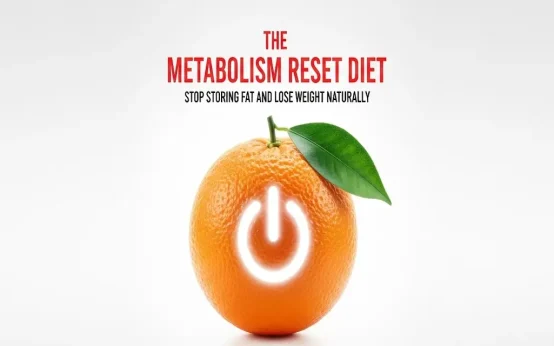You eat better, move more and try every remedy in the book, but that stubborn belly fat just won’t budge. Feeling frustrated by slow progress isn’t uncommon, especially when you put in real effort but see little change around your waistline.
If you’ve asked yourself, “why can’t I lose belly fat no matter what I do,” you’re not alone. There are reasons this happens even when you’re doing things right. This article breaks down the key factors that make belly fat hard to lose, highlights common mistakes, and shares practical advice you can use right away.
You’ll also find links to proven tips for how to lose belly fat effectively and explore habits that truly matter for seeing results. Let’s get started and help you take control of your progress.
Understanding Why Belly Fat is So Hard to Lose
Many people follow diet plans, exercise routines and do everything “right” yet find their belly fat sticks around. This challenge leaves you asking, “why can’t I lose belly fat no matter what I do?” The answer lies in the type of fat stored around your waist, how your body uses energy, and even your genetics. Knowing these differences can help you target the right strategies for real results.
Subcutaneous vs. Visceral Fat: Detail the differences and why visceral fat is particularly stubborn.
Belly fat isn’t all the same. There are two main types that matter: subcutaneous fat and visceral fat. Each acts differently and, unfortunately, not all fat is equally easy to lose.
- Subcutaneous fat is the soft layer just under your skin. You can pinch it on your stomach, hips, or arms. While it changes your body shape, it isn’t as dangerous for your health.
- Visceral fat sits deeper inside your body, wrapping around your internal organs like your liver, intestines and pancreas. This type is what makes your waistline more than just a number on your pants — it can actually affect your long-term health.
Visceral fat is the toughest to lose. Here’s why:
- It is more responsive to stress hormones like cortisol, which makes it grow faster when you’re stressed.
- It produces inflammatory chemicals that slow your body’s fat-burning abilities.
- Visceral fat is linked to a higher risk of diabetes, heart disease and other chronic issues, so tackling it should be a priority if you’re struggling with belly fat.
When you look at belly fat that just won’t budge, it’s often this hidden visceral fat that’s sticking around. Eating right and making key lifestyle tweaks play a huge part. For more on what you should be eating, check out Bio Vanish, delicious cocoa-flavored drink, designed to help with weight loss
Metabolic and Genetic Factors: Explain how genetics and metabolism make belly fat loss more difficult for some individuals.
If you’re feeling stuck and asking, “why can’t I lose belly fat no matter what I do,” consider your metabolism and genes. Your body’s metabolism is how quickly it turns food into energy. Some people burn calories like a fast-burning stove, while others have a slower burn.
Here’s what impacts belly fat beyond just diet and exercise:
- Genetics: Family history plays a large role. If your parents carried extra weight around their midsection, you may be naturally prone to the same pattern. This doesn’t mean you’re doomed, but it may require more effort to see results.
- Hormones: As you age, hormone levels change, especially during menopause or due to stress. These shifts make it easier to gain and harder to lose belly fat.
- Muscle mass: Muscle burns more calories than fat. If you aren’t strength training or have less muscle, your body may hang onto belly fat, even if you diet.
- Lifestyle factors: Poor sleep, too much sitting and everyday stress each chip away at your fat-burning potential.
While you can’t change your genetics, you can work with your body by supporting your metabolism and making small changes to your habits. Start by focusing on foods known to keep you full and support healthy weight loss, which are covered in our weight loss diet tips.
Understanding these roadblocks is important for setting realistic goals and finding answers to “why can’t I lose belly fat no matter what I do.” If you know where your challenge comes from, you can focus your energy on things that work best for you.
Lifestyle and Diet Mistakes That Prevent Belly Fat Loss
Are you following diet and exercise advice yet asking, “why can t I lose belly fat no matter what I do”? Sometimes, it’s not your effort but key lifestyle and nutrition slip-ups working against you. It’s easy to overlook mistakes that make fat loss nearly impossible, even with the best intentions. Here’s a look at where things often go wrong.
Eating Habits That Hinder Fat Loss
Many struggle to lose belly fat due to common eating mistakes. Processed foods, added sugars and poor meal timing all play big roles.
- Refined sugar is everywhere: in sodas, breakfast cereals and even salad dressings. These sugars spike your insulin, making your body store more fat around your belly.
- Processed foods are designed to be tasty and convenient, but they tend to be low in nutrition and high in calories. This leads to overeating without realizing it.
- Skipping meals or eating erratically disrupts your metabolism. Your body responds by holding onto fat, thinking it needs to prepare for the next skipped meal.
Some habits to pay attention to:
- Limit junk foods and sugary snacks.
- Choose whole, unprocessed foods.
- Try eating regular, balanced meals rather than grazing from morning to night.
A simple shift to more stable and mindful eating can make a world of difference. For specific steps, see these healthy eating tips for weight loss.
The Downside of Fad Diets
Jumping on the latest diet trend seems exciting at first—quick results, promises of rapid weight loss and dramatic before-and-afters. But most of these diets set you up for disappointment.
Extreme diets are tough on your hormones and metabolism. When you cut calories too low or drop entire food groups, your body senses famine and slows your metabolism.
What happens then?
- You burn fewer calories than before.
- Hunger hormones rise, making you crave high-calorie foods.
- You may lose muscle, not just fat, which makes long-term weight loss even harder.
This hormonal rollercoaster leaves you frustrated and, often, heavier than when you started. If you’ve tried restrictive diets and still wonder “why can t I lose belly fat no matter what I do,” think about the diet traps you’ve fallen for.
Learn more about the problems with popular fad diets and why a slow, steady approach leads to real change.
Exercise Approaches: Are You Doing It Right?
Many people get stuck trying to burn belly fat with the wrong exercise plan or, in some cases, not moving enough at all.
Spot reduction (the idea that hundreds of crunches will melt away belly fat) is a myth. Your body chooses where to lose fat based on many factors, not just your workout routine.
Common exercise mistakes slowing down progress:
- Only focusing on one area, like sit-ups for the abs.
- Doing only cardio and skipping strength training.
- Not moving enough throughout the week.
You’ll have more success by mixing full-body workouts, resistance training and heart-pumping cardio. This combination helps you increase muscle, burn more calories and tell your body to let go of that stubborn fat.
Small tweaks in your daily habits and routine can make a big difference if you’re stuck asking, “why can t I lose belly fat no matter what I do.” Rethink these mistakes, and you may finally see that change in your waistline.
Hidden Factors Blocking Your Belly Fat Loss
You could be eating clean, exercising plenty and still find yourself stuck, wondering, “why can t I lose belly fat no matter what I do?” That stubborn belly fat sometimes sticks around because of factors you can’t see as clearly as diet or exercise. Your stress levels, how well you sleep, changes to your hormones and your metabolism all play a behind-the-scenes role in fat storage, especially around your waist. Let’s bring these hidden roadblocks into the spotlight, so you can get the breakthrough you’ve been working toward.
Chronic Stress and Lack of Sleep
Living in a state of constant stress or skimping on sleep makes losing belly fat feel nearly impossible. When your body senses stress, it releases more cortisol. This stress hormone doesn’t just affect your mood, it changes where your body chooses to store fat, sending it straight to your midsection. Too much cortisol can encourage your body to hang onto calories instead of burning them.
Sleep is another piece of the puzzle. If you regularly get less than 7 hours a night, your hunger hormones go wild. Poor sleep makes you crave sugar and high-carb foods during the day, while also slowing your metabolism. The end result? Your good habits don’t add up to the progress you want because your body keeps storing fat as a defense mechanism.
Quick tips to help break the cycle:
- Stick to a regular sleep schedule, even on weekends.
- Build a winding-down bedtime routine to signal your body it’s time to rest.
- Try stress-management techniques like meditation, deep breathing or gentle movement.
- Avoid screens and caffeine close to bedtime.
Addressing stress and sleep can help reset your body’s fat-burning mode and support your belly fat loss journey.
Hormonal Imbalances and Age
Hormones hold the keys to your belly fat loss puzzle, especially as you get older. As early as your 30s and 40s, hormone levels begin to shift. Women start to see drops in estrogen, particularly around menopause, which promotes fat storage around the belly. Men deal with falling testosterone, which not only affects energy and mood but also makes building muscle (and burning fat) harder.
An out-of-balance thyroid or increased insulin resistance can also make it more difficult to lose stubborn fat. Your body can become more sensitive to carbs or less efficient at burning calories as you age.
While you can’t turn back the clock, you can support your body’s natural balance. Focus on regular exercise, whole foods, and quality sleep. Certain habits and nutrients might also support hormone health over time. For men, incorporating natural testosterone boosters may help maintain muscle mass and a healthier metabolism.
Paying attention to these changes is key if you keep asking, “why can t I lose belly fat no matter what I do.” Sometimes, a few smart tweaks to your routine can tip the scales in your favor.
Sluggish Metabolism and How to Boost It
Your metabolism is the engine that burns calories for energy. If you notice weight loss comes slower than it used to, you’re not imagining things. Age, inactivity and even restrictive dieting can slow your metabolic rate, making it tougher to lose belly fat no matter what you try.
But you aren’t powerless. Here are some effective ways to nudge your metabolism back into action:
- Move more: Even light daily activity adds up. Walk, stretch or do a quick workout between tasks.
- Lift weights: Muscle burns more calories than fat. Strength training can help reverse metabolic slowdown.
- Eat enough protein: Protein helps maintain muscle while keeping hunger in check.
- Don’t skip meals: Skipping meals or eating too little signals your body to conserve, not burn, fat.
- Drink plenty of water: Hydration helps keep metabolism humming and supports fat loss.
Curious about drinks that might boost your metabolic rate? Find out more by reading about tea and metabolism boost for insights on how tea might play a supporting role.
Addressing a slow metabolism takes patience and consistent effort, but these steps can make a noticeable difference. If your efforts seem stalled, remember your body may just need a little extra support to get back on track.
By taking a closer look at these hidden blockers, you can give your belly fat loss plan a much-needed boost, even when you feel like you’re doing everything right.
Conclusion
Belly fat that refuses to budge is more common than you think. Between hidden hormonal shifts, stress, stubborn genetics and metabolism changes, you may feel you’re doing everything right with no results. But you’re not alone if you keep searching “why can t I lose belly fat no matter what I do.” The key is to stay patient and remember progress happens when small changes add up over time.
There’s no one-size-fits-all fix, but shifting your workout to include resistance and targeted routines can help. If you haven’t yet, check out these effective exercises to lose belly fat to shake up your fitness plan in a way that works with how your body burns fat. Don’t give up. Look at each habit, tweak what you can, and keep learning what really supports your health.
FAQ:
Why is belly fat so hard to lose compared to other areas?
Your body stores fat in different places for many reasons, including hormones and genetics. The fat around your belly is often more stubborn because it’s influenced by stress hormones, like cortisol, and it tends to be the last place where your body sheds fat.
Does diet matter more than exercise for losing belly fat?
Both matter, but you can’t out-exercise a poor diet. Calories add up fast, especially from sugary drinks and processed foods. A balanced diet with plenty of protein, fiber, and healthy fats, along with fewer refined carbs, helps target belly fat more than exercise alone.
I work out regularly, so why isn’t my stomach getting smaller?
Exercise helps, but if you’re still eating too many calories, drinking lots of alcohol, or sleeping poorly, fat can hang on. The wrong workouts may also play a role. Mixing cardio with strength training works better for fat loss than just doing crunches or sit-ups.
Can stress really make it harder to lose belly fat?
Yes, stress causes your body to release cortisol, which signals your body to hold on to fat, especially around your middle. Chronic stress also impacts sleep and food choices, making it harder to lose fat.
Does age affect how much belly fat I keep?
As you get older, your metabolism slows down and hormone levels change. This makes it easier for fat to build up in your belly and harder to lose it the way you used to.
Why am I gaining belly fat even though I eat healthy?
“Healthy” foods can still have lots of calories. Some people underestimate portion sizes or eat too many high-calorie snacks. Other factors include stress, sleep issues, medical conditions, or medications that may cause weight gain.
Is spot reduction possible with targeted exercises?
No, you can’t choose where your body burns fat first. Sit-ups and planks can build muscle underneath belly fat, but overall fat loss comes from a healthy diet and regular activity.
How does sleep affect belly fat?
Lack of sleep messes with hunger hormones, which can make you eat more and crave sugar or carbs. Poor sleep also raises stress hormones, making it easier to gain belly fat.
Does alcohol cause belly fat?
Drinking alcohol adds empty calories and can slow your metabolism. It also lowers your inhibitions, so you may eat more. Heavy drinking is tied to higher levels of belly fat.
Could a medical condition be stopping me from losing belly fat?
Some conditions can slow fat loss or boost fat storage. These include thyroid issues, polycystic ovary syndrome (PCOS), and insulin resistance. If you’re struggling despite a good routine, check in with a doctor.
How long does it usually take to see results in belly fat loss?
Everyone’s different, but with a consistent approach, most people notice changes in 4 to 12 weeks. Weight loss happens at different rates for everyone, and sticking with it is key.
What’s the best way to get rid of stubborn belly fat?
Eat a balanced diet, manage stress, get enough sleep, and mix both cardio and strength training. Small, steady changes work best for lasting results. If you have questions, talk to a health professional for advice that fits your body and lifestyle.



 How to Start a Weight Loss Program
How to Start a Weight Loss Program  What Vitamin Deficiency Makes It Hard to Lose Weight?
What Vitamin Deficiency Makes It Hard to Lose Weight?  Improve Fat Burning With a Metabolism Reset Diet
Improve Fat Burning With a Metabolism Reset Diet  The Best Food for the Keto Diet
The Best Food for the Keto Diet  How to Avoid Loose Skin When Losing Weight
How to Avoid Loose Skin When Losing Weight  Can You Lose Weight on Carnivore Diet?
Can You Lose Weight on Carnivore Diet?